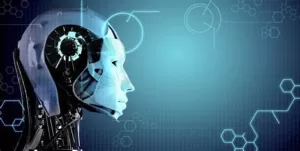
AI and the future of home automation: how technology is transforming the way we interact with our homes
The Pros and Cons of AI-Driven Home Automation Systems: What to Consider Before Investing
Home automation systems are becoming increasingly popular as technology advances and the cost of these systems decreases. Artificial intelligence (AI) is a key component of many home automation systems, allowing them to learn and adapt to the user’s preferences and behaviors. While AI-driven home automation systems offer many benefits, there are also some potential drawbacks to consider before investing in one.
Pros
Convenience: AI-driven home automation systems can make life more convenient by automating tasks such as turning on lights, adjusting the thermostat, and locking doors. This can save time and energy, as well as reduce stress.
Security: AI-driven home automation systems can help to improve security by monitoring for suspicious activity and alerting the user if something is amiss. This can help to deter burglars and other intruders.
Energy Efficiency: AI-driven home automation systems can help to reduce energy consumption by automatically adjusting the thermostat and turning off lights and other appliances when not in use. This can help to save money on energy bills.
Cons
Cost: AI-driven home automation systems can be expensive to purchase and install. This may be a deterrent for some people who are on a budget.
Privacy: AI-driven home automation systems can collect data about the user’s habits and preferences, which can be a concern for those who value their privacy.
Reliability: AI-driven home automation systems can be unreliable if they are not properly maintained or if the software is outdated. This can lead to frustration and wasted time.
Before investing in an AI-driven home automation system, it is important to consider the pros and cons. While these systems can offer convenience, security, and energy efficiency, they can also be expensive and may pose a risk to privacy. It is important to weigh the potential benefits and drawbacks before making a decision.

The Security Implications of AI-Powered Home Automation Systems
The emergence of artificial intelligence (AI) has revolutionized the home automation industry, allowing users to control their home environment with unprecedented ease and convenience. However, the use of AI-powered home automation systems also raises important security concerns.
First, AI-powered home automation systems are vulnerable to cyberattacks. As these systems are connected to the internet, they can be targeted by malicious actors who can gain access to the system and manipulate it to their own ends. For example, an attacker could gain access to the system and control the lights, thermostat, and other devices in the home. This could lead to significant disruption and even physical harm to the occupants of the home.
Second, AI-powered home automation systems can be used to collect and store sensitive data about the occupants of the home. This data can include information about the occupants’ daily routines, their preferences, and even their financial information. This data can then be used by malicious actors to target the occupants with malicious attacks or to gain access to their accounts.
Finally, AI-powered home automation systems can be used to monitor the occupants of the home. This can include tracking their movements, recording their conversations, and even monitoring their activities. This data can then be used to target the occupants with malicious attacks or to gain access to their accounts.
In light of these security concerns, it is important for users of AI-powered home automation systems to take steps to protect their systems. This includes ensuring that the system is regularly updated with the latest security patches, using strong passwords, and using two-factor authentication. Additionally, users should be aware of the data that is being collected and stored by the system and take steps to protect it.
By taking these steps, users of AI-powered home automation systems can ensure that their systems remain secure and that their data remains private.
The Future of Home Automation: What to Expect from AI-Driven Solutions
The future of home automation is an exciting prospect, with the potential to revolutionize the way we live our lives. As technology advances, so too does the potential for AI-driven solutions to make our homes smarter and more efficient. In the coming years, we can expect to see a range of AI-driven solutions that will make home automation easier and more accessible than ever before.
One of the most promising developments in home automation is the use of AI-driven voice assistants. These voice assistants are able to understand and respond to voice commands, allowing users to control their home automation systems with ease. With the help of AI, these voice assistants can learn from user interactions and become more accurate and efficient over time. This will make it easier for users to control their home automation systems without having to learn complex commands or navigate complicated menus.

Another area where AI-driven solutions are likely to make a big impact is in the area of security. AI-driven security systems will be able to detect and respond to potential threats in real-time, allowing users to feel safe and secure in their homes. AI-driven security systems will also be able to learn from user behavior and adapt to changing conditions, making them more effective over time.
Finally, AI-driven solutions will also be able to make home automation more efficient. AI-driven systems will be able to learn from user behavior and optimize energy usage, allowing users to save money on their energy bills. AI-driven systems will also be able to detect and respond to potential problems before they become serious, allowing users to avoid costly repairs and maintenance.
The future of home automation is an exciting prospect, and AI-driven solutions will be at the forefront of this revolution. With the help of AI, home automation systems will become easier to use, more secure, and more efficient than ever before. In the coming years, we can expect to see a range of AI-driven solutions that will make home automation easier and more accessible than ever before.
Exploring the Benefits of AI-Powered Home Automation Systems
The advent of artificial intelligence (AI) has revolutionized the way we interact with our homes. AI-powered home automation systems are becoming increasingly popular, offering homeowners a range of benefits that make life easier and more efficient. From controlling lighting and temperature to providing security and entertainment, AI-powered home automation systems are transforming the way we live.
One of the most significant benefits of AI-powered home automation systems is convenience. With the ability to control lighting, temperature, and other aspects of the home from a single device, homeowners can easily adjust their environment to suit their needs. AI-powered home automation systems can also be programmed to respond to voice commands, allowing users to control their home with minimal effort.
Another benefit of AI-powered home automation systems is energy efficiency. By automating lighting and temperature, homeowners can reduce their energy consumption and save money on their utility bills. AI-powered home automation systems can also be programmed to detect when a room is unoccupied and automatically adjust the temperature accordingly, further reducing energy consumption.
In addition to convenience and energy efficiency, AI-powered home automation systems can also provide enhanced security. With the ability to monitor and control access to the home, homeowners can rest assured that their property is safe and secure. AI-powered home automation systems can also be programmed to detect motion and sound, alerting homeowners to any suspicious activity.
Finally, AI-powered home automation systems can provide entertainment. With the ability to control audio and video systems, homeowners can enjoy their favorite music and movies with ease. AI-powered home automation systems can also be programmed to respond to voice commands, allowing users to control their entertainment with minimal effort.
In conclusion, AI-powered home automation systems offer a range of benefits that make life easier and more efficient. From convenience and energy efficiency to enhanced security and entertainment, AI-powered home automation systems are transforming the way we live.
The Impact of AI on Home Automation: How AI is Changing the Way We Live
The advent of artificial intelligence (AI) has revolutionized the way we live. AI has enabled us to automate many of our daily tasks, from controlling the temperature of our homes to managing our finances. Home automation, in particular, has been greatly impacted by AI, allowing us to control our homes with unprecedented ease and convenience.
AI-enabled home automation systems allow us to control our homes with voice commands, mobile apps, and even gestures. We can adjust the temperature, turn on the lights, and even lock the doors with a few simple commands. AI-enabled home automation systems can also be programmed to respond to certain conditions, such as when someone enters the house or when the temperature drops below a certain level. This allows us to automate many of our daily tasks, freeing up time for more important activities.

AI-enabled home automation systems can also be used to monitor our homes for safety and security. AI-enabled cameras and sensors can detect intruders and alert us to any potential threats. AI-enabled systems can also be used to monitor energy usage, allowing us to save money on our utility bills.
AI-enabled home automation systems are also becoming increasingly popular for entertainment purposes. AI-enabled systems can be used to control our home entertainment systems, allowing us to access our favorite movies and music with ease. AI-enabled systems can also be used to control our home theater systems, allowing us to enjoy a cinematic experience in the comfort of our own homes.
In conclusion, AI has had a profound impact on home automation, allowing us to control our homes with unprecedented ease and convenience. AI-enabled home automation systems can be used to automate many of our daily tasks, monitor our homes for safety and security, and even control our home entertainment systems. As AI technology continues to evolve, we can expect to see even more innovative applications of AI in home automation.







